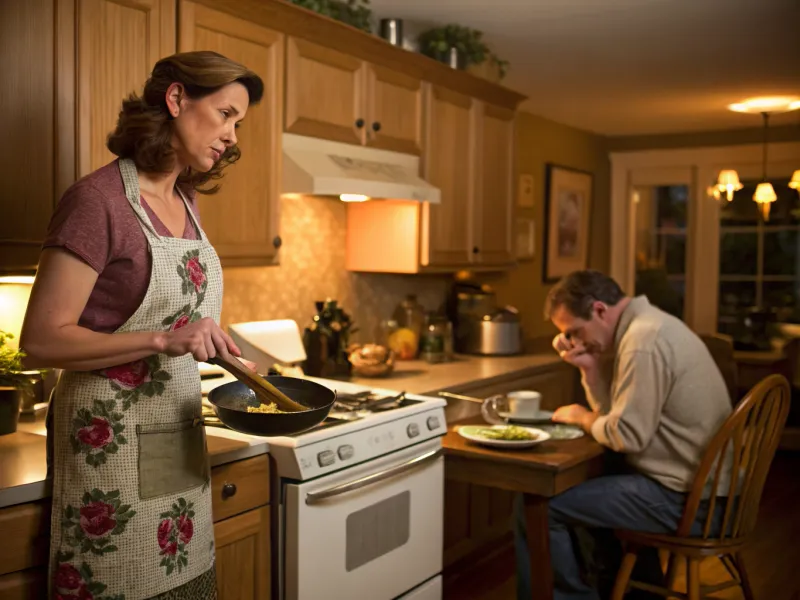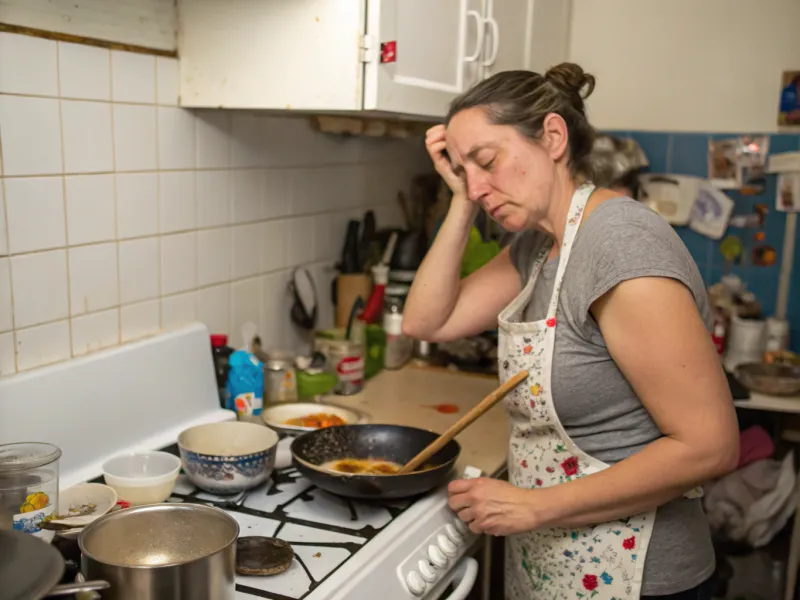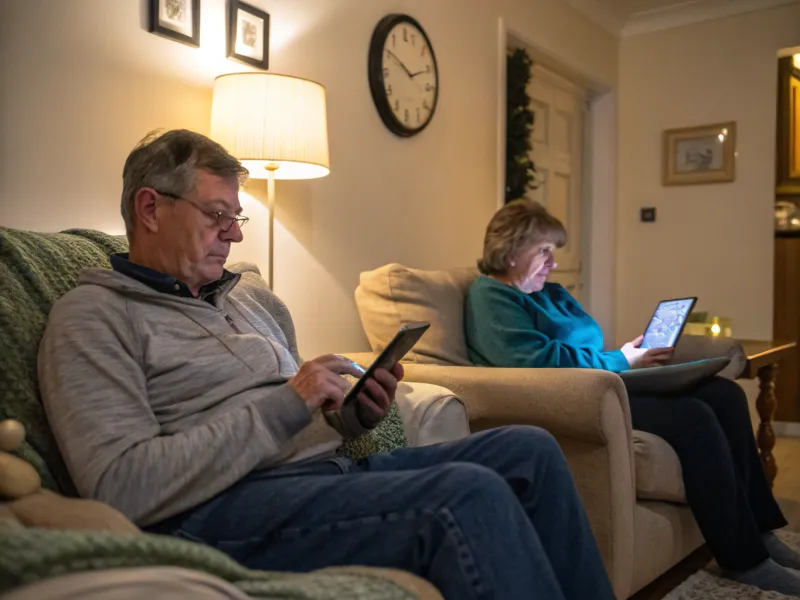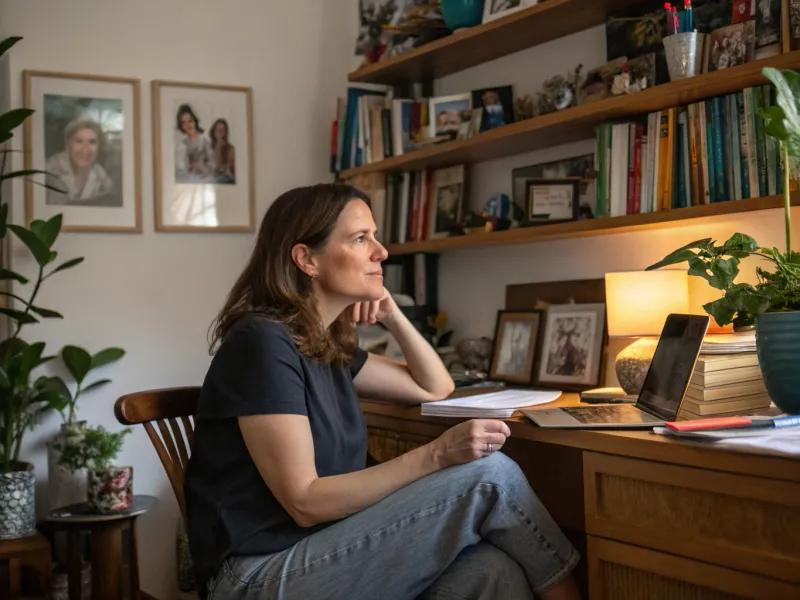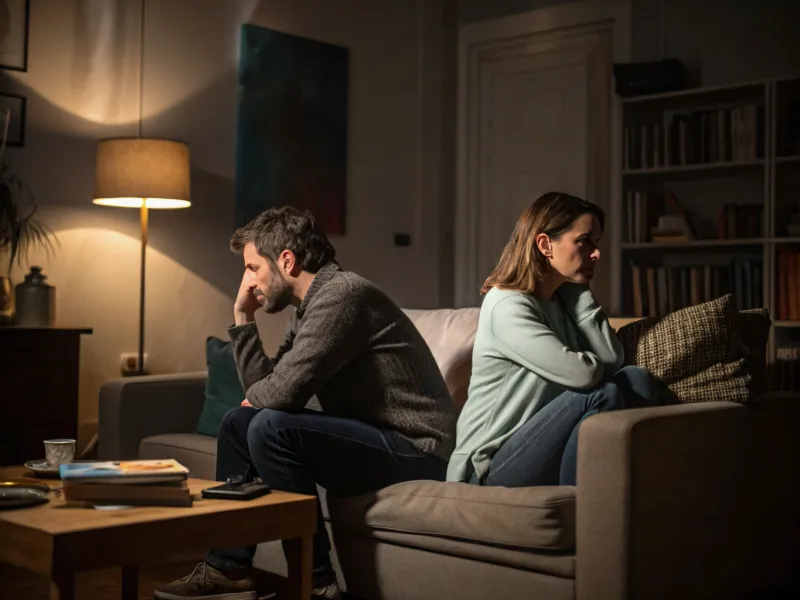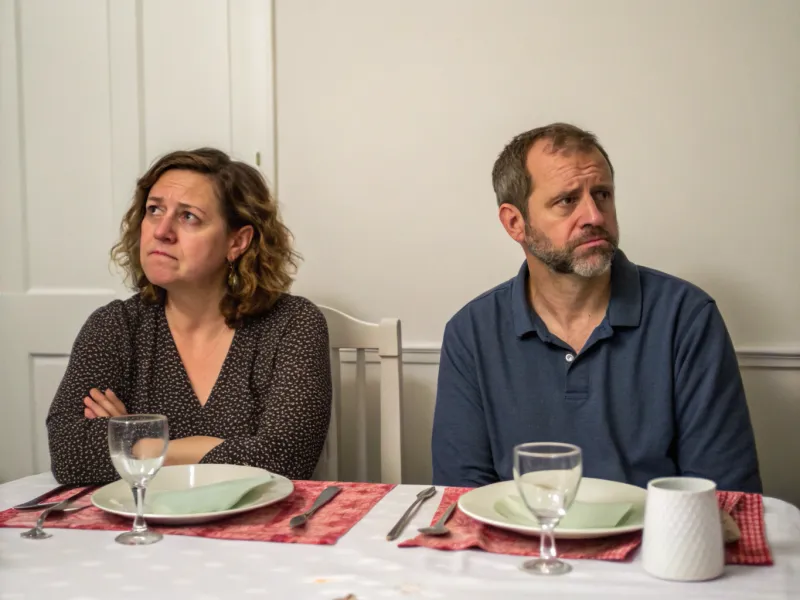Enamorarse es una experiencia estimulante, pero mantenerse enamorado requiere esfuerzo y comprensión.
Muchas mujeres se desenamoran de sus cónyuges con el paso del tiempo, a menudo por diversos motivos, tanto emocionales como coyunturales.
He aquí 35 razones comunes por las que las mujeres pueden desenamorarse, cada una de ellas acompañada de ideas y ejemplos únicos.
1. 1. Falta de comunicación
La comunicación es la base de cualquier relación sólida. Cuando las parejas dejan de hablarse, surgen los malentendidos y las suposiciones. Imagínese lo siguiente: Intentas expresar tus sentimientos o preocupaciones, y tu pareja los ignora o simplemente no responde. Con el tiempo, esto puede provocar sentimientos de aislamiento y resentimiento.
Por experiencia propia, cuando mi marido y yo dejamos de compartir nuestros pensamientos y sentimientos cotidianos, es como si viviéramos vidas separadas bajo el mismo techo. Es crucial sentirse escuchado y comprendido en una relación, y la falta de comunicación puede erosionar rápidamente esa conexión.
Para remediarlo, descubrí que reservar un tiempo al día para hablar, hablar de verdad, nos ayudaba a reconectar. No se trata sólo de hablar de la logística de la vida, sino también de compartir esperanzas, sueños e incluso miedos. Esta apertura reavivó la intimidad emocional que habíamos perdido.
2. Descuido de las necesidades emocionales
La negligencia emocional puede ir minando poco a poco el amor en un matrimonio. Cuando un miembro de la pareja ignora o pasa por alto constantemente las necesidades emocionales del otro, envía el mensaje de que esas necesidades no son importantes. Esto puede ser muy doloroso y provocar sentimientos de soledad.
Tomemos, por ejemplo, una situación en la que llegas a casa después de un día largo y agotador y lo único que quieres es un abrazo reconfortante o que te escuchen. En lugar de eso, te encuentras con un compañero indiferente que no se da cuenta de tu angustia. Este comportamiento repetido puede hacer que cualquiera se sienta poco querido e infravalorado.
Para contrarrestarlo, he aprendido la importancia de expresar claramente mis necesidades y animar a mi pareja a hacer lo mismo. Empezamos una sesión semanal de "chequeo emocional", en la que hablamos abiertamente de nuestros sentimientos y necesidades. Este pequeño esfuerzo supuso una gran diferencia a la hora de garantizar que ambos nos sintiéramos apoyados emocionalmente.
3. Monotonía y rutina
La rutina puede ser reconfortante, pero también puede llevar al aburrimiento en una relación. Cuando cada día parece una repetición del anterior, el entusiasmo y la chispa que una vez caracterizaron la relación pueden desvanecerse. Imagínese esto: Te levantas, vas a trabajar, vuelves a casa, cenas y ves la tele, todo sin ninguna variación ni emoción. Con el tiempo, esta monotonía puede estancar la relación.
Recuerdo cuando la rutina diaria con mi marido empezó a parecerme el Día de la Marmota. Estábamos atrapados en un bucle sin final a la vista. Fue entonces cuando nos dimos cuenta de que necesitábamos un cambio. Empezamos a planear salidas nocturnas espontáneas y a probar nuevas actividades juntos, desde clases de cocina hasta excursiones de senderismo.
Romper la rutina no tiene por qué ser extravagante; a veces, un simple cambio de aires o probar algo nuevo puede reavivar la pasión y la curiosidad en una relación. Se trata de encontrar la alegría en lo inesperado y redescubrirse de nuevo.
4. Pérdida de intereses compartidos
Los intereses compartidos son a menudo lo que une a las personas, pero con el tiempo, esos intereses pueden divergir. Cuando la pareja deja de tener actividades o aficiones que disfrutan juntos, puede producirse una ruptura en la relación. Imagínese pasar los fines de semana dedicados a pasiones distintas sin que coincidan.
Me enfrenté a una situación similar cuando mi marido y yo nos dimos cuenta de que ya no teníamos aficiones comunes. A él le gustaban los deportes y a mí el arte y la literatura. Cada vez pasábamos más tiempo separados y eso afectaba a nuestro vínculo. Fue entonces cuando decidimos explorar nuevos intereses juntos, como apuntarnos a clases de baile.
Encontrar nuevos puntos en común nos ayudó a volver a conectar y suscitó nuevas conversaciones. Se trata de evolucionar juntos y apoyar las pasiones del otro, descubriendo al mismo tiempo otras nuevas de las que ambos puedan disfrutar. De este modo, la relación sigue siendo dinámica y atractiva.
5. Conflictos no resueltos
Los conflictos son inevitables en cualquier relación, pero la forma en que se gestionan puede determinar su impacto. Cuando los desacuerdos quedan sin resolver, pueden se enconan y se convierten en problemas mayores, causando distanciamiento emocional.
Imagínese tener la misma discusión una y otra vez sin resolverla. Esto provoca frustración y la sensación de que los problemas se esconden debajo de la alfombra. En mi relación, teníamos un desacuerdo persistente sobre las finanzas que resurgía una y otra vez, dejándonos cada vez más frustrados.
Finalmente decidimos abordarlo de frente, reservando un tiempo específico para discutirlo, centrándonos en comprender las perspectivas de cada uno en lugar de limitarnos a ganar la discusión. Este enfoque nos ayudó a aclarar las cosas, llegar a compromisos y avanzar positivamente. Abordar los conflictos de forma constructiva puede reforzar el entendimiento y profundizar la conexión emocional.
6. Infidelidad
Pocas cosas pueden ser tan devastadoras para una relación como la infidelidad. Cuando se rompe la confianza, pueden quedar sentimientos de traición, inseguridad y angustia difíciles de reparar.
Descubrir que tu pareja te ha sido infiel se siente como una traición aguda, que sacude los cimientos de todo lo que habéis construido juntos. Es una herida que requiere tiempo, paciencia y esfuerzo para cicatrizar. Para quienes están dispuestos a reparar la relación, reconstruir la confianza implica comunicación abierta, transparencia y compromiso con la honestidad.
Una amiga nos contó una vez cómo la terapia de pareja les ayudó a ella y a su pareja a superar una infidelidad. Aunque no fue un proceso fácil, la orientación de un profesional les permitió desentrañar sus sentimientos y reconstruir su conexión. Para algunas parejas, la relación puede sobrevivir e incluso prosperar después de la tormenta. Para otras, la decisión de separarse permite el crecimiento personal y la curación.
7. Incompatibilidad financiera
Los problemas de dinero son una de las fuentes más comunes de tensión en las relaciones. Diferentes planteamientos a la hora de ahorrar, gastar o Las prioridades financieras pueden crear una brecha difícil de salvar sin entendimiento y compromiso.
Al principio de mi matrimonio, mi marido y yo teníamos hábitos financieros muy diferentes. Mientras yo prefería ahorrar para objetivos a largo plazo, él creía en disfrutar de la vida en el momento. Este desequilibrio provocaba a menudo discusiones y frustraciones. No fue hasta que programamos una conversación sincera sobre nuestras expectativas financieras que empezamos a encontrar un terreno común.
Juntos creamos un presupuesto que respetaba las prioridades de ambos. Aprender a trabajar en equipo desde el punto de vista financiero fortaleció nuestra relación, y el dinero dejó de ser una fuente de tensiones para convertirse en una herramienta compartida para alcanzar nuestros sueños. Alinear los valores financieros es esencial para la armonía y la confianza en cualquier relación de pareja.
8. Falta de aprecio
Cuando los esfuerzos de alguien pasan desapercibidos, puede sentirse infravalorado e invisible. Con el tiempo, esta falta de reconocimiento puede erosionar el amor y crear distancia emocional.
Hubo un tiempo en que sentía que las pequeñas cosas que hacía -ya fuera planear sorpresas especiales o encargarme de las tareas cotidianas- se daban por sentadas. Este sentimiento de falta de aprecio empezó a generar resentimiento y a hacerme sentir menos unida a mi pareja.
Para cambiar esta situación, empecé a expresar abiertamente mis sentimientos y a animar a mi marido a hacer lo mismo. La gratitud se convirtió en una práctica habitual en nuestra relación, en la que ambos nos esforzamos por percibir y reconocer las contribuciones del otro. Un simple "gracias" o un gesto sincero pueden ayudar mucho a que tu pareja se sienta vista y valorada.
9. Crecer aparte
Es natural que las personas crezcan y cambien con el tiempo, pero cuando el crecimiento se produce en direcciones diferentes, puede dejar socios que se sienten desconectados. Un vínculo antaño estrecho puede sentirse distante a medida que surgen nuevos intereses o prioridades.
En mi propio matrimonio, me di cuenta de que, a medida que evolucionábamos como individuos, empezábamos a distanciarnos emocionalmente. Ya no compartíamos los mismos objetivos o intereses, y parecía como si lleváramos vidas separadas. En lugar de dejar que esta división creciera, hicimos un esfuerzo consciente por redescubrirnos el uno al otro.
Empezamos a reservar tiempo para hablar de la evolución de nuestros sueños y a explorar actividades que nos unieran de nuevo. Crecer en una relación no significa quedarse estancado, sino adaptarse a la persona en la que te estás convirtiendo y encontrar formas de estrechar lazos a través de esos cambios.
10. Falta de intimidad
La intimidad es algo más que la cercanía física; consiste en sentirse emocional y espiritualmente conectado a la pareja. Cuando la intimidad se desvanece, puede crear un vacío que haga que uno o ambos miembros de la pareja se sientan distanciados.
Recuerdo una época en la que el estrés de la vida cotidiana nos había pasado tal factura que mi marido y yo apenas pasábamos tiempo juntos, tanto física como emocionalmente. La distancia entre nosotros fue creciendo hasta que nos dimos cuenta de la importancia de volver a dar prioridad a la intimidad.
Reconstruir la intimidad no tiene por qué empezar con grandes gestos. Actos sencillos como darse la mano, compartir cumplidos o incluso reservar tiempo para hablar sin distracciones pueden marcar la diferencia. La intimidad física es importante, pero la cercanía emocional suele ser la base de una relación próspera.
11. Estrés y presión
Las exigencias de la vida a menudo pueden filtrarse en una relación, creando estrés y tensión que abren una brecha entre los socios. Las presiones externas del trabajo, la familia o las dificultades económicas pueden acumularse con el tiempo, dificultando el mantenimiento de la cercanía emocional.
Hubo un periodo en el que mi marido y yo estábamos abrumados por las responsabilidades laborales, lo que nos dejaba poco tiempo o energía para el otro. El peso del estrés nos hacía sentir como si fuéramos compañeros de piso en lugar de pareja.
Decidimos hacer frente juntos al estrés reservándonos momentos de relajación en pareja. Ya fuera dando un paseo nocturno, cocinando la cena juntos o simplemente desahogándonos sobre nuestro día, compartir la carga nos ayudó a reconectar. Afrontar los retos de la vida en equipo crea un sentimiento de unidad y fortaleza, incluso en los momentos difíciles.
12. Falta de apoyo
En una relación de pareja, sentirse sin apoyo puede provocar resentimiento y frustración. Cuando una persona siente que carga sola con el peso de las responsabilidades, se crea un desequilibrio que puede tensar la relación.
Recuerdo una época en la que hacía malabarismos con el trabajo, las tareas domésticas y los compromisos personales, y sentía que mi marido no colaboraba. Ese desequilibrio me hacía sentir poco importante, lo que provocaba tensiones entre nosotros.
Al final nos sentamos y dividimos las responsabilidades de forma más justa. Hablar abiertamente sobre cómo repartir la carga hizo que ambos nos sintiéramos valorados y apoyados. Ofrecer y recibir apoyo refuerza el vínculo entre la pareja y fomenta el respeto mutuo.
13. Diferentes objetivos vitales
Cuando los miembros de la pareja no coinciden en sus objetivos a largo plazo, pueden surgir confusiones y conflictos en la relación. Las diferentes visiones de futuro, ya sea sobre la carrera profesional, la familia o el estilo de vida, pueden hacer que ambos se sientan frustrados y desconectados.
Mi marido y yo nos enfrentamos una vez a este reto cuando nos dimos cuenta de que nuestros sueños para el futuro no coincidían del todo. Mientras yo quería establecerme en un lugar, él estaba ansioso por explorar y viajar. Fue difícil superar esta disparidad hasta que empezamos a hablar sinceramente de nuestras esperanzas y prioridades.
Al encontrar áreas de compromiso y crear una visión compartida para el futuro, encontramos la forma de apoyar los sueños del otro manteniendo una sólida relación de pareja. Alinearse en los objetivos vitales garantiza que camináis juntos hacia un horizonte común.
14. Falta de tiempo de calidad
El tiempo de calidad suele ser el pegamento que mantiene unidas las relaciones. Sin él, los compañeros pueden empezar a sentirse como extrañosviviendo uno al lado del otro, pero emocionalmente a kilómetros de distancia.
Hubo un tiempo en el que mi marido y yo estábamos tan ocupados con el trabajo y las responsabilidades que apenas pasábamos momentos significativos juntos. Parecía que nuestra relación funcionaba con el piloto automático.
Para cambiar esto, empezamos a reservar "tiempo para nosotros", ya fuera una cita semanal o simplemente desconectar de las pantallas durante unas horas para hablar y reír juntos. Incluso los pequeños momentos de conexión intencionados pueden devolver la chispa y recordaros por qué os enamorasteis.
15. Pérdida de la identidad individual
En una relación, es fácil perderse en los papeles de pareja, padre o profesional, dejando atrás el sentido de la individualidad. Con el tiempo, esta pérdida puede provocar insatisfacción y una sensación de estar atrapado.
Una vez sentí que me había olvidado de quién era fuera de mi matrimonio, lo que me hacía sentir inquieta e insatisfecha. Redescubrir mis aficiones y pasiones, como la pintura y el yoga, no solo me ayudó a reconectar conmigo misma, sino que también me convirtió en una mejor compañera.
Apoyar la individualidad del otro permite a ambas personas prosperar dentro de la relación. Un equilibrio entre el crecimiento personal y las experiencias compartidas mantiene el amor vibrante y satisfactorio.
16. Expectativas poco realistas
Esperar la perfección en una relación puede llevar a la decepción. Cuando la realidad no se ajusta a las expectativas idealizadas, pueden surgir la frustración y el resentimiento.
Solía creer que mi pareja debería saber instintivamente cómo satisfacer todas mis necesidades sin que se lo dijera. Cuando no era así, me sentía insatisfecha. Con el tiempo, me di cuenta de que una comunicación clara y unas expectativas realistas son mucho más eficaces que suponer.
Entender que nadie es perfecto y apreciar lo que la pareja hace bien puede ayudar mucho. Construir una relación sólida implica compromiso, empatía y celebrar juntos las pequeñas victorias.
17. Dependencia excesiva de la tecnología
La tecnología ha facilitado la vida en muchos aspectos, pero también puede crear una barrera en las relaciones. Cuando la pareja pasa más tiempo con el teléfono o el ordenador que con el otro, la conexión emocional se resiente.
Recuerdo tardes en las que mi marido y yo estábamos físicamente juntos pero emocionalmente a kilómetros de distancia porque estábamos pegados a nuestras pantallas. Hacía que nuestras interacciones parecieran superficiales y desconectadas.
Decidimos crear zonas libres de tecnología en casa, como durante la cena o antes de acostarnos, lo que nos dio la oportunidad de reconectar de verdad. Poner límites a la tecnología ayuda a priorizar las conversaciones significativas y las experiencias compartidas.
18. Falta de confianza
La confianza es uno de los elementos más importantes de una relación. Cuando se rompe la confianza -ya sea por falta de honradez, secretismo o incoherencia-, puede crear distancia emocional e inseguridad.
He visto cómo incluso pequeñas mentiras pueden convertirse en una bola de nieve que provoque problemas mayores y lleve a una falta de fe en la relación. Reconstruir la confianza requiere tiempo, paciencia y transparencia. Las conversaciones abiertas sobre sentimientos y límites son esenciales para recuperar la sensación de seguridad.
Siendo coherente y honesto, la confianza puede reconstruirse, creando los cimientos de una conexión más fuerte y saludable.
19. Celos
Los celos, cuando no se controlan, pueden convertirse en una fuerza tóxica en una relación. Compararte constantemente con los demás o sentirte amenazado por las interacciones de tu pareja puede crear tensiones innecesarias.
Al principio de mi matrimonio luché contra los celos, a menudo imaginando situaciones que no se basaban en la realidad. No fue hasta que trabajé en mi autoestima y me comuniqué abiertamente con mi marido que la inseguridad empezó a desaparecer.
Fomentar la autoestima y la confianza puede ayudar a aliviar los celos. Es importante recordar que una relación sana se basa en el respeto mutuo y la seguridad, no en la desconfianza.
20. Habilidades inadecuadas para la resolución de conflictos
Las discusiones son normales, pero la forma en que se gestionan puede hacer que una relación funcione o se rompa. Cuando los desacuerdos se intensifican sin solución, pueden dejar un resentimiento persistente.
Hubo un tiempo en que mi marido y yo evitábamos hablar de ciertos temas porque no sabíamos cómo resolverlos. La tensión iba en aumento hasta que estallaba de forma poco saludable. Con el tiempo, buscamos herramientas como la escucha activa y el compromiso para gestionar los desacuerdos de forma constructiva.
Aprender técnicas de resolución de conflictos ayuda a convertir las discusiones en oportunidades de crecimiento. Fomenta un mejor entendimiento y acerca a las parejas en lugar de separarlas.
21. Diferentes estilos de crianza
La crianza de los hijos puede ser una parte muy gratificante de una relación, pero los distintos enfoques pueden provocar fricciones. Los desacuerdos sobre disciplina, educación o rutinas pueden crear tensión y frustración.
Recuerdo una acalorada discusión con mi marido sobre cómo manejar una rabieta con nuestro hijo. Nuestros puntos de vista eran tan diferentes que nos sentíamos desconectados. Nos dimos cuenta de la importancia de encontrar puntos en común y alinearnos en los valores de crianza.
Al comunicarnos abiertamente y respetar los puntos de vista del otro, desarrollamos un enfoque unificado. Trabajar juntos como un equipo no solo reforzó nuestra crianza, sino también nuestro vínculo como pareja.
22. Falta de aventura
A veces, la rutina puede apagar la chispa de una relación. Cuando la vida se vuelve previsible, es fácil perder la sensación de emoción y aventura que os unió.
Llegó un momento en que nuestros fines de semana parecían un ciclo monótono de recados y tareas. Para cambiar las cosas, empezamos a planear pequeñas aventuras, ya fuera un viaje espontáneo por carretera o probar un restaurante nuevo. Estas experiencias nos recordaron la diversión y la curiosidad que nos unieron en un principio.
Introducir un poco de aventura en su relación no tiene por qué ser extravagante. Incluso los pequeños cambios pueden reavivar la chispa y aportar nueva energía a tu relación.
23. Falta de inteligencia emocional
La inteligencia emocional es la capacidad de reconocer, comprender y gestionar las emociones, tanto las propias como las de la pareja. Sin ella, es fácil que surjan malentendidos y sentimientos heridos.
He aprendido que despreciar o minimizar los sentimientos de tu pareja puede crear distancia emocional. Desarrollar habilidades como la empatía y la escucha activa ayuda a salvar las distancias y reforzar los vínculos afectivos.
Cuando ambos miembros de la pareja se esfuerzan por comprender las emociones del otro, se crea un sentimiento más profundo de conexión y confianza. La inteligencia emocional es una poderosa herramienta para superar los retos y construir una relación más sólida.
24. Necesidades insatisfechas en el dormitorio
La intimidad física es un aspecto crucial de una relación. Cuando no se satisfacen las necesidades, puede producirse frustración y distanciamiento emocional.
Imagínese sentirse insatisfecho o insatisfecha en el dormitorio, lo que provoca tensión y desconexión. En mi matrimonio, abordar las necesidades físicas insatisfechas implicaba una comunicación abierta y explorar los deseos de cada uno.
Hablar de las necesidades físicas y estar dispuesto a experimentar o transigir ayuda a crear una relación satisfactoria y plena. Se trata de garantizar que ambos se sientan deseados y valorados, fomentando una conexión emocional y física más profunda.
25. Trauma pasado
Los traumas no resueltos del pasado pueden ensombrecer una relación y dificultar la plena conexión con la pareja. Ya sean experiencias personales o heridas de relaciones pasadas, estas cicatrices emocionales pueden resurgir inesperadamente.
En mi caso, abordar las heridas del pasado a través de la terapia me permitió comprender cómo estaban afectando a mi relación. La paciencia de mi marido y su disposición a escuchar fueron cruciales para crear un espacio seguro de sanación.
Apoyarse mutuamente en el proceso de curación fomenta la comprensión y la confianza. Reconocer el dolor del pasado y trabajar juntos para crecer puede ayudar a las parejas a construir una conexión más fuerte y resistente.
26. Incapacidad de perdonar
Guardar rencor puede pesar mucho en una relación. La falta de perdón engendra resentimiento, creando una barrera para la intimidad emocional.
Una vez me costó olvidar un desacuerdo, lo repetía en mi mente y permitía que influyera en mi forma de relacionarme con mi marido. No fue hasta que decidí olvidarlo que pudimos seguir adelante.
Perdonar no significa olvidar, sino elegir la paz en lugar de la amargura. Practicar el perdón ayuda a fortalecer la confianza y allana el camino para una relación más feliz y armoniosa.
27. Falta de humor
La risa es una herramienta poderosa en las relaciones. Cuando falta el humor, puede conducir a una relación aburrida y estancada.
Imagina una relación en la que la risa y la alegría se han desvanecido, dejando un ambiente serio y monótono. He descubierto que aceptar el humor y encontrar la alegría en los momentos cotidianos mantiene viva la relación.
Ya sea compartiendo chistes, viendo comedias o simplemente siendo juguetones, incorporar el humor fomenta un ambiente positivo y cariñoso. Este desenfado profundiza la conexión y mantiene vivo el amor.
28. Miedo a la vulnerabilidad
Abrirse puede parecer arriesgado, pero la vulnerabilidad es la piedra angular de la intimidad emocional profunda. Cuando la pareja oculta su verdadero yo por miedo, se crea distancia.
Antes evitaba compartir mis preocupaciones porque no quería agobiar a mi marido. Con el tiempo, me di cuenta de que ocultar mis sentimientos sólo hacía que me sintiera más aislada.
Crear un espacio seguro para la vulnerabilidad permite a ambos miembros de la pareja sentirse vistos y apoyados. La apertura refuerza la confianza y fomenta una conexión más profunda.
29. Falta de romance
El romance añade una capa de emoción e intimidad a las relaciones. Cuando se desvanece, la asociación puede parecer rutinaria y poco inspirada.
Llegó un momento en que mi marido y yo dejamos de dar prioridad a los gestos románticos. Decidimos recuperar la chispa con pequeñas sorpresas, como notas escritas a mano o salidas espontáneas.
El romance no tiene por qué ser grandioso. Los actos sencillos de amor y consideración pueden hacer que tu pareja se sienta apreciada y que la relación siga prosperando.
30. Pobre equilibrio entre trabajo y vida privada
Equilibrar el trabajo y la vida personal es crucial para una relación sana. Cuando el trabajo se impone, puede llevar al abandono y la desconexión.
Imagina sentir que tu pareja está más comprometida con su trabajo que con la relación. He aprendido que poner límites y priorizar el tiempo de calidad fomenta un equilibrio más sano.
Crear un equilibrio entre trabajo y vida privada que se adapte a las necesidades de ambos garantiza que la relación siga siendo satisfactoria. Se trata de valorar el tiempo del otro y crear una relación en la que ambos se sientan apoyados y apreciados. Este equilibrio alimenta una relación afectuosa y conectada.
31. Diferentes valores culturales
Las diferencias culturales pueden aportar riqueza a una relación, pero también pueden crear malentendidos si no se abordan abiertamente.
Mi marido y yo procedemos de entornos culturales diferentes, lo que a veces provocaba choques de tradiciones y expectativas. El diálogo abierto y el respeto mutuo nos ayudaron a superar estas diferencias e incluso a aceptarlas como un punto fuerte.
Conocer las culturas de los demás fomenta la comprensión y crea un sentimiento de unidad. Se trata de celebrar la diversidad encontrando puntos en común.
32. Límites poco claros
Sin límites claros, las relaciones pueden volverse tensas. La pareja puede sentir que no se tienen en cuenta sus necesidades o su espacio personal.
Recuerdo momentos en los que me sentía abrumada porque no había establecido límites claros sobre lo que podía soportar emocional o físicamente. Establecer límites nos permitió respetar mejor las necesidades del otro.
Definir y respetar los límites crea una dinámica más sana en la que ambos miembros de la pareja se sienten valorados y seguros.
33. Falta de planificación de futuro
Sin objetivos comunes para el futuro, una relación puede carecer de dirección. La pareja necesita tener una visión de hacia dónde se dirigen juntos.
En un momento dado, mi marido y yo nos dimos cuenta de que hacía años que no hablábamos de planes a largo plazo. Sentarnos a trazar nuestros objetivos, tanto personales como compartidos, nos dio un renovado sentido del propósito.
La planificación de futuro refuerza la relación al crear una hoja de ruta para el crecimiento, garantizando que ambos socios trabajan por un sueño compartido.
34. Agotamiento emocional
La vida puede ser exigente, y cuando uno de los miembros de la pareja se siente emocionalmente agotado sin apoyoEl amor puede desvanecerse poco a poco. Dar constantemente sin recibir puede hacer que una persona se sienta agotada, lo que lleva a un distanciamiento emocional de la relación.
Recuerdo una época en la que tenía que hacer malabarismos con el trabajo, las responsabilidades domésticas y el apoyo emocional a todos los que me rodeaban, pero nadie se ocupaba de mí. El agotamiento me impedía sentirme unida a mi marido, y nuestra relación empezó a deteriorarse.
Dar prioridad al autocuidado y asegurarse de que ambos miembros de la pareja están emocionalmente disponibles para el otro puede evitar el agotamiento. Una relación debe ser un lugar de apoyo emocional mutuo, donde ambos se sientan seguros para apoyarse el uno en el otro sin miedo a sentirse abrumados.
35. Falta de respeto mutuo
El respeto es la columna vertebral de una relación duradera. Cuando los miembros de la pareja se menosprecian, desestiman opiniones o no reconocen los límites, el amor puede erosionarse.
He visto relaciones en las que pequeños comportamientos irrespetuosos -moverse de un lado a otro, hacer comentarios desdeñosos o ignorar peticiones- se convierten poco a poco en un resentimiento más profundo. Incluso en mi propio matrimonio, hubo momentos en los que olvidamos que el respeto no consiste sólo en grandes gestos, sino en acciones cotidianas.
Reconstruir el respeto empieza por la atención y la comunicación abierta. Una relación prospera cuando ambos se sienten valorados, escuchados y tratados como iguales, lo que refuerza el amor y la admiración que los unió en un principio.









